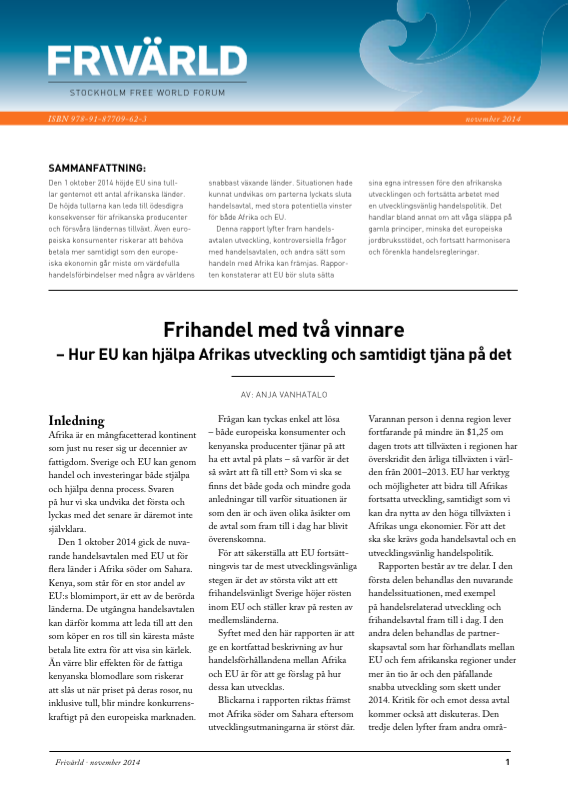In October 2014, the European Union increased its tariffs against a number of countries in Africa. The increased tariffs can lead to extreme consequences for producers in Africa and hamper the countries’ growth. Even European consumers are at risk of having to pay more while the European economy is deprived of valuable trade relations with some of the world’s fastest growing countries. This situation could have been avoided if the parties were to conclude a trade agreement which would lead to potential gains for both Africa and Europe.
The report suggests that the European Union should stop putting their own interests ahead of African development and continue to work on a development-friendly trade. This includes daring to let go of old principles in order to reduce European agricultural subsidies and continued harmonization and simplification of commerce regulations.
 Anja Vanhatalo is a master student in International Economics at the Stockholm School of Economics. She has previously worked with private sector development and trade promotion at the Swedish Embassy in Tanzania and conducted field studies in Kenya.
Anja Vanhatalo is a master student in International Economics at the Stockholm School of Economics. She has previously worked with private sector development and trade promotion at the Swedish Embassy in Tanzania and conducted field studies in Kenya.
